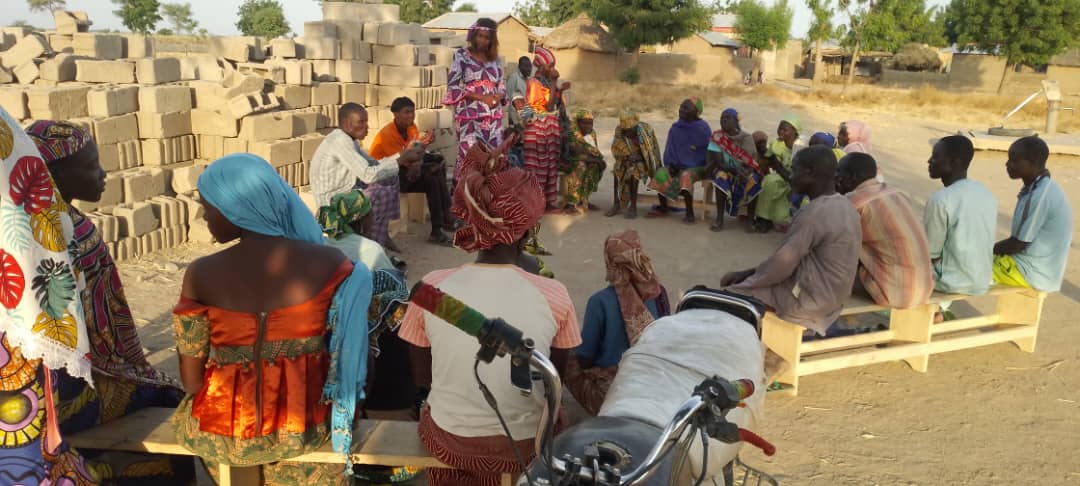A Clean Work Environment
Jun 30, 2025 • 2 min read
A clean living environment leads to a clean work environment, which leads to a positive economic impact.
Read More
Two Bankim cluster communities resolved to improve their livelihood by developing clean underground water from drilled boreholes. Transformational Community Development (TCD) efforts continue to be appreciated in the Bankim cluster thanks to the remarkable success in the Tchim/Mvouh community. Mape City had their turn as well, and now Bandam and Guingklo will benefit.
“The new borehole model we find at Mape City and Tchim/Mvouh inspires us to seek out new adaptive technology that helps alleviate the water-carrying burden of women and children. Not only that, water from deep boreholes is cleaner than that from shallow wells. I have noticed a decrease in the hospitalization of children in Mape City just within a short time interval. My community is resolved to work for this innovation,” declared the paramount chief of the Mbandam community.
During our household surveys in these communities, water samples were collected and tested for the presence of E. coli and coliform bacteria. Many samples from Mbandam and Quingklo detected loads of E. coli bacteria, which was making people sick, while Mape City and Tchim/Mvouh samples returned very little coliform, showing the new boreholes were necessary.
The entire Bankim subdivision of the Adamawa region in Cameroon suffers from waterborne diseases with several hospitalizations on a daily basis. In June 2024, a Water Sanitation and Hygiene (WASH) sustainability survey indicated that 85% of realized water projects are nonfunctional, which is a worry to the poor agrarian population in the entire Bankim cluster. Concerted efforts are required to help the over 48 villages with their water issues.
During two separate meetings, Bandam and Guingklo resolved to provide a 15% capital budget, local labor, and room and board for technicians. They committed to the financial and technical sustainability plan of the water project. We are expecting the 15% capital as soon as possible, as we are working hard to raise the rest of the 85% capital cost of the water project.
Also, in our future plan for Tchim/Mvouh communities, the Food Committee is mobilizing to have a small poultry farm for table birds and a grinding mill for corn/rice to take care of their local harvest.
Thank you!
Written by Eugene, GHNI Partner
If you prefer to donate by check, please mail your check to:
Global Hope Network International
934 N. Magnolia Ave.
Suite 310
Orlando, FL 32803
For all projects or staff - including our efforts to prevent Coronavirus in some of the most vulnerable communities:
GHNI Switzerland
27 Chemin des Crets Pregny
1218 Grand Saconnex
Geneva, Switzerland
Download a payment slip (ESR, BVR)
Or give by direct wire or transfer -
In Favor of Global Hope Network International
Purpose: Your designated purpose for funds
Bank Name: Credit Suisse SA
Bank Address: 8070 Zurich, Switzerland
Bank Clearing No. 4835
BIC CRESCHZZ80A
Account / IBAN: CH81 0483 5043 3460 4200 1